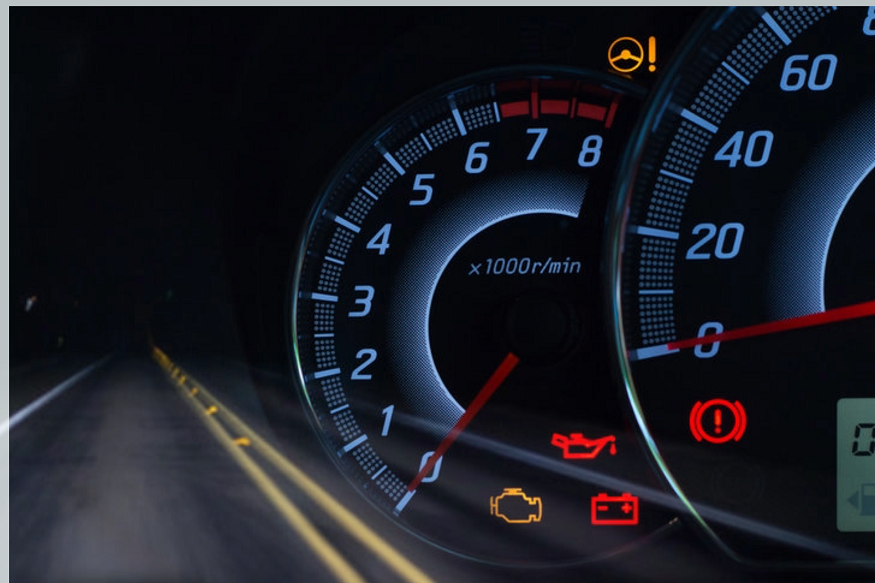Many car owners think that starting the car and driving for a few minutes daily is enough to keep the battery healthy but frequent short drives often do more harm than good. Your car battery needs time to recharge properly.When it does not get that much time, it slowly loses its strength. Apart from the battery, other parts of the car also get affected.
Let us understand how short trips can damage battery health and what other issues they can create.
Weak Recharging on Short Trips
When you start your car, the battery delivers a big burst of power to crank the engine. After this, the alternator takes over and recharges the battery while the engine runs. However, this recharging takes time.
If your drive is very short, say less than 10–15 minutes, the alternator cannot fully recharge the battery. Over time, partial charging weakens the battery and reduces its lifespan.
Extra Stress and Wear
Short trips also increase the wear and tear on your battery. Since the battery is working harder to start the car repeatedly without enough time to recharge, an extra loadis put on the battery. This stress leads to sulfation, a process in which lead sulfate crystals form inside the battery, making it more difficult to hold a charge.
The result is a battery that drains quickly, struggles to start the car and eventually needs replacement much earlier than expected.
Trouble With Temperature Balance
Car batteries are designed to perform within certain temperature ranges. On longer drives, the engine and battery warm up steadily.The alternator compensates for temperature changes. But during short trips, the battery does not get enough time to stabilise.
In cold weather, this means the battery remains undercharged. In hot weather, it risks overheating. Both conditions reduce efficiency and can shorten battery life.
Engine Wear from Short Drives
It’s not just the battery that suffers. Short trips also put more strain on the engine. When you drive only a short distance, the engine does not reach its optimal operating temperature. This leads to incomplete combustion, carbon buildup and oil that does not circulate properly.
While this may seem unrelated to the battery, a struggling engine often requires more effort to start, which puts an additional load on the battery.
Drop in Fuel Economy
Frequent short drives also hurt fuel efficiency. Since the engine is often running cold, it burns more fuel to function. This means you spend more on petrol or diesel while still damaging the car.
For the battery, poor fuel efficiency often means the alternator works harder for less gain. This indirect effect reduces the battery’s charging efficiency during each trip.
Moisture and Condensation Issues
When a car is driven for only a short time, the engine does not heat up enough to evaporate moisture inside the system. This leads to condensation, which can build up in the exhaust and other parts.
Moisture can also affect the battery by causing corrosion around the terminals. Corroded terminals reduce the flow of electricity, making it harder for the battery to deliver or receive a charge. Over time, this further weakens battery performance.
Smart Ways to Reduce Battery Damage from Short Drives
While short trips are sometimes unavoidable, a few smart practices can lower their impact on your car battery and keep it healthier for longer.
- Take longer drives when possible: Try to include a 20–30 minute drive once or twice a week. This gives the alternator enough time to recharge the battery fully.
- Avoid unnecessary engine starts: If you only need to move the car a few feet, avoid starting it and shutting it down immediately. Multiple starts without proper running time drain the battery quickly.
- Keep battery terminals clean: Regularly check for corrosion around the terminals and clean them if needed. This ensures smooth charging and power flow.
- Limit electrical use on short trips: Avoid heavy use of AC, headlights or music systems during short drives, as these drain power while the alternator has less time to recharge the battery.
- Schedule regular battery checks: A quick voltage test or inspection from a mechanic helps detect early signs of weakness before it leaves you stranded.
You can reduce the strain of short trips on your battery and ensure it stays reliable for longer by adopting these simple habits.
Keeping Battery Health in Check
Frequent short drives may seem harmless.However, their long-term impact can be costly. The battery faces repeated undercharging, increased stress and temperature issues, while the engine and fuel system also suffer.
To keep your battery healthy, try to include longer drives in your routine, ensure the terminals are clean and check the charge level regularly. For added peace of mind, choosing a reliable and durable option like TATA Green Batteries ensures your vehicle is always supported with consistent power and low-maintenance performance. Small changes in driving habits can protect both your battery and your car’s overall performance.

